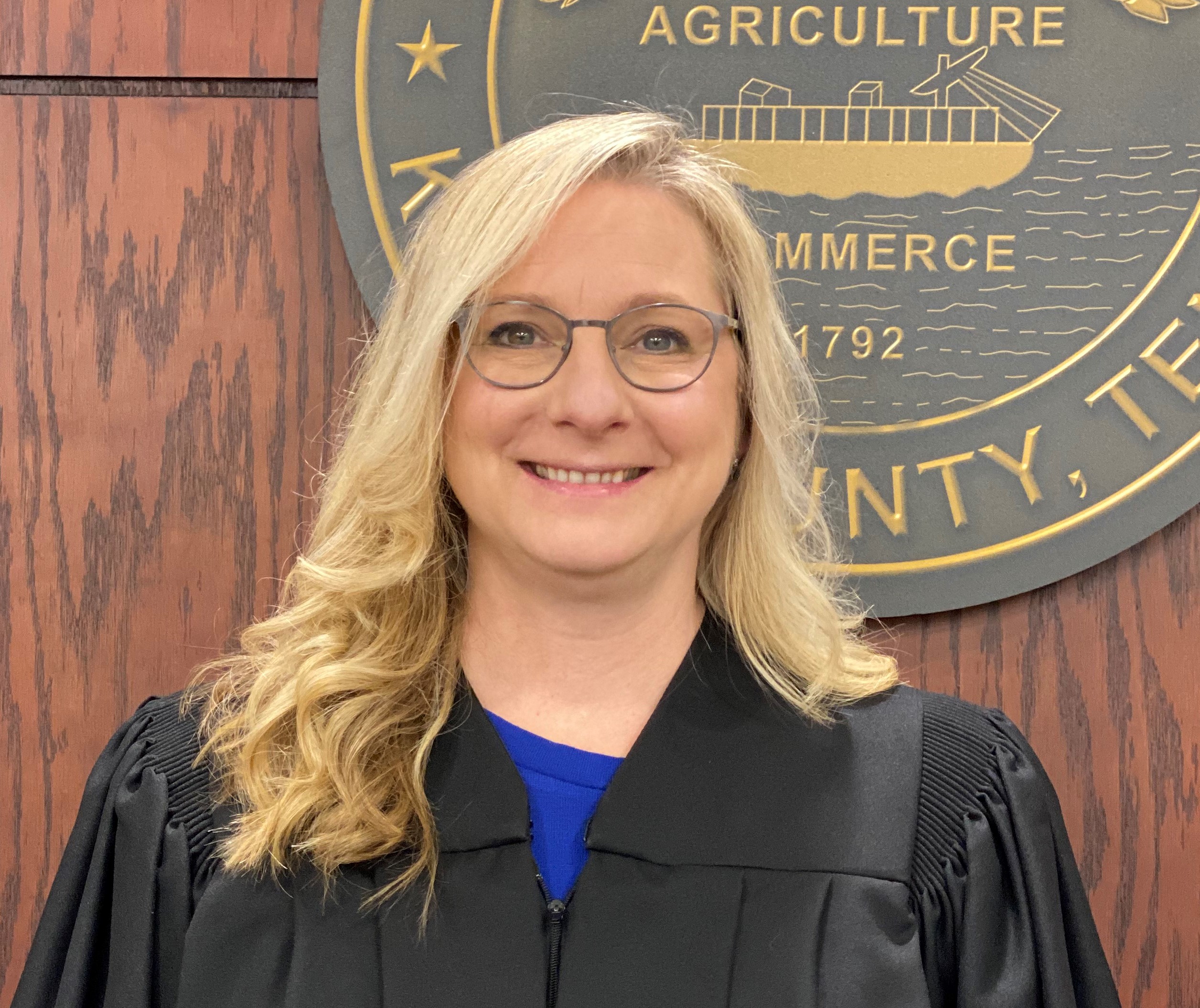Angela was born in Cincinnati, Ohio. Angela attended the University of Cincinnati, and ultimately completed a degree in Psychology, graduating Summa Cum Laude at The University of Tennessee. Angela has been married 28 years to her husband Chris and they have six children and six grandchildren. When Angela’s youngest child went to Kindergarten, Angela decided to go to law school to fill her newly found free time. During Law School, Angela was accepted as a Fellow into the Emory University Barton Clinic Summer Fellowship program. It was during this summer that Angela was introduced to Juvenile Court Practices, specifically representing children with dependency and neglect issues. Angela practiced for 15 years as a child advocate attorney before accepting a position with the Knox County Juvenile Court as a Magistrate. Angela was thrilled to be asked to be a part of Safe Babies Court and is looking forward to improving the lives of children and families in our community.
While Angela is no stranger to Safe Baby Court in Knox County, it was a privilege to speak more with her about her career journey and her vision for SBC moving forward.
KAKI: Reading your bio, I think it’s interesting that you started Law School when your youngest child started Kindergarten… What led you to that decision and how did you end up working in child welfare?
ANGELA: When I entered law school, I initially envisioned myself working in education law. My husband and I had a child with special needs and we had a hard time navigating the special education system to ensure her needs were met. I considered us both educated people, and I realized that if it was challenging for us, it must be tremendously difficult for others. When I went to the Barton Clinic at Emory, I was under a Juvenile Court Judge and I learned that I loved dependency law but also that you see education issues in that law. I also realized that my vision of practicing advocacy work in education law wasn’t necessarily feasible because most education lawyers represent the school system, not the families. Advocacy work seemed to fit my skill set and interests.
KAKI: What compelled you to pursue a career from the bench?
ANGELA: To me it was a natural progression of what I’d already been doing. Work as a Guardian Ad Litem can be similar to work as a Magistrate. The work is different from professional representation in dependency cases. When you represent a parent, they can tell you what they want. As a GAL, you have to figure out what’s in a child’s best interest and that’s also what the responsibility of the Juvenile Court Magistrate is, to do what’s in a child’s best interest.
KAKI: In your experience, how does SBC differ from regular dependency cases?
ANGELA: I don’t know that I can answer that as a Magistrate, but as an advocate, it’s different in that there’s just more of everything – more court, more meetings, more money and resources, more people to help the families, more services – all the things are more. A lot of times, you get in court for a non-SBC case and basically the family is on their own to figure out how to get what they need. They don’t have anyone to guide them or help them. I like how SBC offers the families the guidance they need to be successful.
KAKI: What is your vision for SBC in Knox County and what are you most excited about in taking on this court program?
ANGELA: I think my vision is exactly what the mission of SBC is – to get the birth to three population stable permanency as fast as possible – I think that’s so important. If you look at foster care as a whole, the birth to three population can do the best but their best hinges on how quickly they get to permanency, no matter what that permanency looks like. That’s what I want to see, that we’re helping those children be the best they can be now and in the future. Right now, I’m excited to be a part of Safe Baby Court and to help move it forward.
KAKI: What motivates you to do this work when things get tough?
ANGELA: This work can be so hard and it’s cliché to say, but what motivates me in those tough times is reminding myself of that one child that you helped – and knowing that, with good work, there will be another child that you can help. The successes that you have, no matter how few and far between they might be, are the motivating things on hard days.
KAKI: What’s something unique about you and how do you see that impacting your work as a Juvenile Court Magistrate?
ANGELA: I think what’s unique about me is that I have SO many children and they are all very different. I understand parenting more than some people do. I understand that parenting is challenging in the best of circumstances so you have to have compassion for people in the worst of circumstances.

